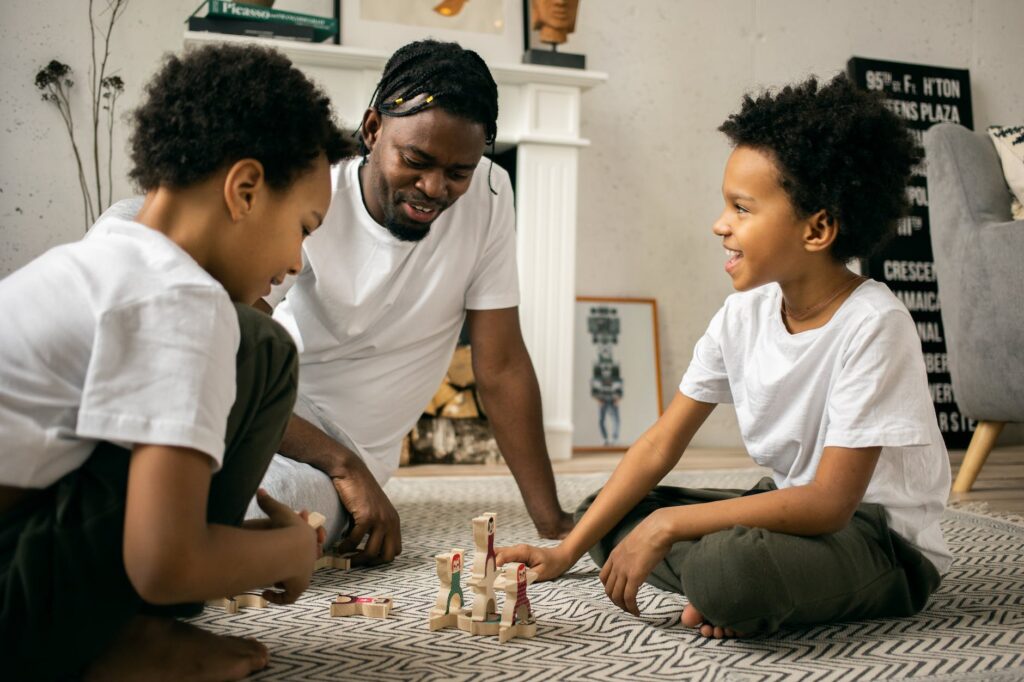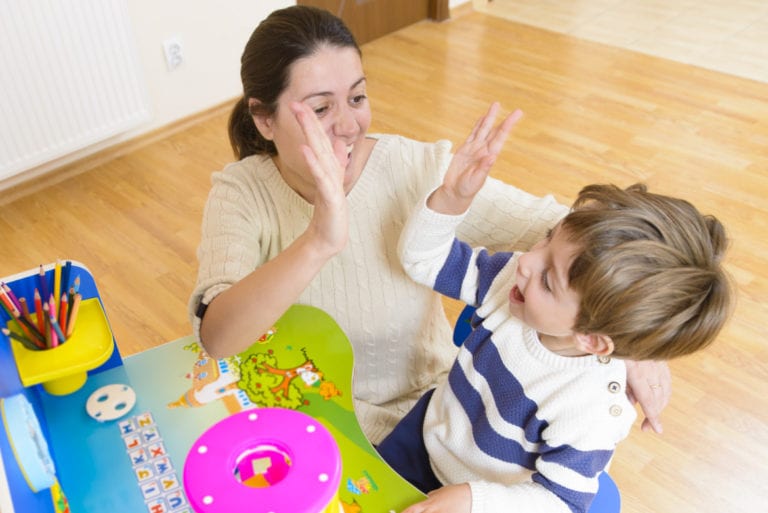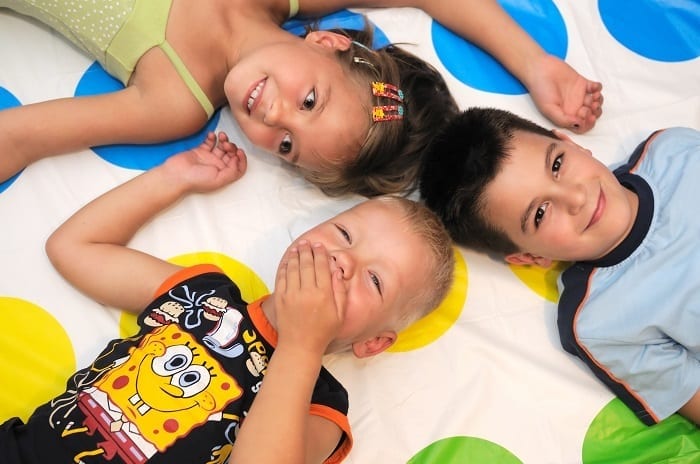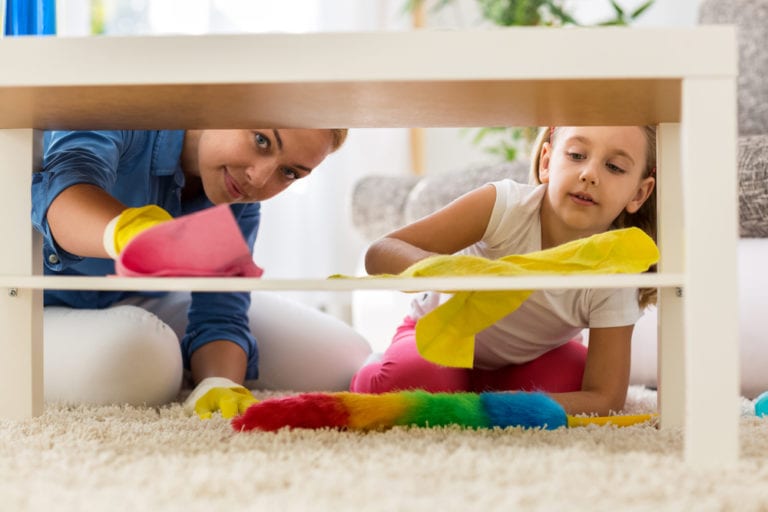Shaping the Future: Tips for Teaching Teens Responsibility
Disclosure: This post may contain affiliate links, meaning I may get a small commission if you decide to make a purchase through my links, at no cost to you.

Have you ever felt like teaching a teenager to drive? You’re in the passenger seat, heart pounding as they fumble with gears and struggle with turns. Teaching teens responsibility can feel very similar.
You know they need these skills for their journey ahead. But boy, is it nerve-wracking! It’s like handing over the keys to your car – a mix of pride and pure terror.
In this guide, we’ll help ease that anxiety by offering practical strategies for instilling time management skills and setting goals. We’ll explore how household chores can become life lessons in accountability while also touching on why allowing natural consequences plays such an essential role in character development.
Buckle up; our trip toward creating responsible young adults begins now!
Also See:
Dealing With an Out-of-Control Teenager in the Family
Affirmations for teens: Improving Confidence and Self-Love
100 Quotes About Parenting Teens
Table of Contents:
- The Significance of Teaching Teens Responsibility
- Understanding Positive Discipline and Adler Theory in Teaching Responsibility
- Time Management Skills for Teens
- Encouraging Goal Setting Among Teens
- Life Skills as a Foundation for Teen Responsibility
- Clear Expectations and Chores as Tools for Teaching Responsibility
- The Power of Natural Consequences in Fostering Responsibility
- Teaching Emotional Responsibility to Teens
- FAQs in Relation to Teaching Teens Responsibility
- Conclusion
The Significance of Teaching Teens Responsibility
Every parent dreams of raising a teenager who’s not only independent but also takes initiative and fulfills responsibilities without needing constant reminders. It might sound like an uphill battle, especially when your teen would rather be scrolling through social media or planning their next extracurricular activities. But it’s crucial to remember that teaching responsibility is key for their character development.
Taking on the role as teachers in our teenagers’ lives allows us to help them grow into responsible young adults capable of making decisions independently. We can use strategies such as setting clear expectations, helping teens manage time effectively, and even letting natural consequences play out when they make poor choices.
Nurturing Responsibility Through Clear Expectations
To start off with, one practical approach to instilling responsibility involves establishing clear expectations.

Teenagers are at a stage where they’re beginning to explore the world more independently; thus having clarity about what is expected from them becomes critical. Research suggests that clearly outlining what you expect from your teenager promotes responsible behavior.
A great way to set these expectations could involve creating a chores list for each week – doing laundry, tidying up their room or assisting with dinner preparations. Involving teens in household management helps them understand accountability while preparing them for adult life.
See Also:
13 Tips for Taming Tantrums from Toddlers to Teens
How to Get Your Teen to Talk About Their Feelings
10 Best Ways to Connect With Your Teen
Time Management: A Key Aspect Of Teaching Teens Responsibility
In today’s fast-paced world, effective time management skills are essential. A study reveals that when we teach goal-setting and planning skills to our teenagers, we provide them with a head start to managing their student lifestyle. Encourage your adolescent to make a timetable that incorporates time for family tasks, schoolwork, and after-school exercises.
Modern tools like digital calendars or apps can help teenagers stay organized and manage their time more effectively. After all, no one wants to be the parent nagging about forgotten tasks.
The Power of Natural Consequences – Teaching Teens Responsibility
Let’s face it – teens will make mistakes (don’t we all?). But did you know there’s an upside? Allowing natural consequences when they err is another effective tool in teaching responsibility, as shown here.
If they forget their lunch because…
Teaching responsibility to teens is a significant task for parents. By setting clear expectations, helping with time management, and letting natural consequences play out, we can shape them into responsible adults. Use practical tools like chores lists or digital calendars to instill accountability and organize their time effectively.
Understanding Positive Discipline and Adler Theory in Teaching Teens Responsibility
When it comes to raising responsible teenagers, we need tools that work. Two such tools are positive discipline and the Adler theory. Both approaches play pivotal roles in teaching responsibility.
The Principles of Positive Discipline
Affirmative discipline isn’t about punishing your teen when they mess up; instead, it’s all about encouragement and building on strengths. It focuses on finding solutions rather than focusing on problems.

This approach lets teens learn from their mistakes while feeling supported rather than reprimanded. So you might say, “Hey kiddo, I see you forgot to put away your laundry again,” with a warm smile instead of an annoyed frown.
You’re still pointing out the issue – forgotten laundry duties – but doing so positively encourages them to fix things themselves next time.Positive discipline, thus, can be an effective method for fostering teen responsibility.
How Adler Theory Promotes Responsible Behavior
The Adler theory, rooted in Alfred Adler’s psychological perspective believes every individual strives towards significance and belongingness within social contexts—like our families. Now imagine if these ‘social contexts’ include responsibilities like helping with household chores or managing personal finances. You got it – Bingo. We have just fostered some good old responsible behavior among our teenagers.
In essence, this concept makes sure your teenager feels significant by contributing meaningfully around the house or schoolwork, etc., thereby promoting responsibility without making it feel like a burden. That’s certainly a win-win situation.
According to the Adler theory, every individual has an innate desire for community feeling—a sense of belonging and contribution. In our context, we could interpret this as teenagers wanting to be responsible members of their family or school community.
This theory nudges us, as parents, to not only assign tasks but also highlight their significance in the grand scheme of things. For instance, explaining how doing laundry ensures everyone has clean clothes for the week. This method shifts chores from a “have-to” scenario and
Teaching responsibility to teens can be a game changer with the right tools, like positive discipline and Adler theory. Positive discipline encourages problem-solving and learning from mistakes, fostering independence. Meanwhile, Adler theory promotes responsibility by emphasizing their significant role in social contexts—making chores feel less burdensome and more meaningful.
Time Management Skills for Teaching Teens Responsibility
The adolescent years can be a challenge for many, with school obligations, extracurricular activities, and social engagements vying for their attention. But don’t fret. It’s possible to help your teens grow into responsible adults by teaching them time management skills.

The Importance of Time Management for Teenagers
We’ve all heard it before: “I just didn’t have enough time.” or “There aren’t enough hours in the day.”. Teaching teens effective time management skills helps tackle this problem head-on. By showing teenagers how to prioritize their tasks and use tools like online calendars or apps, we give them a powerful weapon against procrastination.
This isn’t just about making sure homework gets done on time (although that is important.). Effective planning skills are also crucial life lessons that will prepare our young ones for future challenges – whether they’re balancing college coursework with a part-time job or managing project deadlines at work.
Schedule Planning Session: The Power of Lists.
A great way to start teaching these vital planning process steps is through regularly scheduled planning sessions with your teenager. At our home we call them family meetings. Here is a great article on the benefits of family meetings and a FREE printable for a schedule —-Family Meeting FREE Printable.
You might want to sit down together every Sunday night and create an overview of what’s coming up in the week ahead. Don’t forget pleasure items too – family culture moments, favorite TV shows, meetups with friends – ensuring there’s always something fun on the horizon keeps morale high during busy weeks.
If you’re wondering where chores fit into this list – well so am I. Chores provide another layer of responsibility while giving your teen practical household experience (plus less cleaning up after dinner sounds pretty good right?). Consider setting clear expectations using a chore chart. This allows teens to see their tasks visually and provides a sense of accomplishment once completed.
See Also:
Budget Friendly Mother-Daughter Date Ideas
Father Son Activities to Strengthen The Bond
Tools for Time Management – Teaching Teens Responsibility
adults. Time management apps, like Google Calendar and Trello, can keep track of homework deadlines and social events. By utilizing these applications, you are not only instructing your adolescent how to efficiently oversee their time but also introducing them to the tech they may likely utilize in the future as grown-ups.
Help your teen navigate their busy world by teaching them effective time management skills. Show them how to prioritize tasks and use tools like online calendars or apps to fight procrastination. Schedule regular planning sessions, include fun activities for balance, and use chores as another layer of responsibility. Lastly, introduce tech-based tools such as Google Calendar and Trello to keep track of deadlines.
Encouraging Goal Setting Among Teens
How can we equip our teenagers with the tools they need to thrive in life? One powerful tool in your parenting toolbox is teaching goal setting. When adolescents gain the ability to set objectives for themselves, it gives them a sense of authority on their path toward becoming accountable adults.

A crucial part of this process involves self-directed goals. These are targets that teenagers choose for themselves – be it acing an upcoming test or saving up for something special. By letting them steer the ship sometimes, you’re helping instill a sense of ownership and pride in their achievements. Psychology Today supports this approach too.
The Significance of Goal Setting for Teaching Teens Responsibility
Your teenager might see goal setting as another chore on the list – just like tidying up their room or doing homework. But here’s where you come in with your wisdom (and some humor). Teach them that without clear expectations and plans, reaching any destination can be quite challenging—like trying to find buried treasure without a map. The importance lies not only in achieving these goals but also learning valuable life lessons along the way.
Tips to Teach Your Teen How To Set And Achieve Goals
- Show them how breaking down big tasks into smaller ones makes things manageable. Let’s say they want to start reading more books; suggest starting with 10 pages every day instead of diving straight into War & Peace.
- Praise progress over perfection: Remind your teen that even small steps forward count when they’re working towards a goal. It’s about the journey, not just the destination.
- Help them develop planning skills: Guide your teen to create a realistic timeline for achieving their goals. A daily planner or digital calendar can be useful tools.
The Role of Goal Setting in Fostering Responsibility
It’s pretty amazing, but when you teach teens how to set and reach their goals, you’re also nurturing a sense of responsibility. Don’t forget our
Teaching teens to set their own goals is a key tool in fostering responsibility. By breaking down large tasks into manageable chunks, praising progress over perfection, and helping them plan effectively, we empower our teenagers for future success. Remember, it’s not just about reaching the goal – it’s about the valuable life lessons learned along the way.
Life Skills as a Foundation for Teaching Teens Responsibility
It’s no secret that teens need to learn responsibility. But have you ever considered life skills as the cornerstone of this learning process? Let me tell you, it’s more important than you think.

Take laundry, for instance. It might seem like a mundane task to us adults who’ve been doing it since the dinosaurs roamed Earth (or so our kids believe). But when your teen learns how to do their own laundry, they’re not just sorting whites from colors and figuring out those cryptic symbols on clothing tags. They’re learning accountability – if they don’t wash their clothes, nobody else will.
Cooking is another fantastic opportunity for teaching responsibility. And I’m not talking about instant ramen or microwave pizza rolls either. When teenagers can prepare healthy meals by themselves, they are mastering essential life skills while becoming responsible for their health in a real way.
Financial Responsibility and Money Management
If there’s one thing that screams ‘adulthood,’ it’s managing money effectively.
Your teen getting his first job – whether it be mowing lawns in summer or working part-time at a coffee shop after school – is indeed exciting stuff. More importantly though: having an income brings with itself the necessity (and opportunity) to teach budgeting lessons.
Saving vs Spending:
- Involving them in monthly bill payments helps them understand recurring expenses better,
- Giving them freedom over ‘pleasure items’ purchase decisions makes spending feel consequential,
- Aiding them to set up auto transfers into their savings account promotes the habit of saving.
As we prepare our teens for financial independence, let’s not forget to talk about credit cards and the concept of debt too. That shiny piece of plastic might look like free money, but it comes with its own share of responsibilities.
In short, when your teen learns how to manage money wisely, they’re building a solid foundation for future success in life – both personally and professionally.
Effective Communication: A Key Life Skill
an essential skill that we all need. It’s what enables us to trade thoughts, form bonds, and work out issues as a group.
Life skills are the bedrock of teaching responsibility to teens. By mastering tasks like laundry and cooking, they learn accountability in a tangible way. Earning their first paycheck presents an opportunity for financial lessons, fostering smart money habits for future success. Effective communication is another key life skill that promotes problem-solving and relationship-building.
Clear Expectations and Chores as Tools for Teaching Teens Responsibility
If you’ve ever wondered how to get your teenager responsible, let me tell you a secret. The answer is chores. Yes, those mundane tasks like washing dishes or taking out the trash can be a goldmine of life lessons in disguise.

A study revealed that involving teens in household management teaches responsibility. It gives them an early taste of adult life – cooking dinner isn’t just about making pasta; it’s also about managing time and resources efficiently.
The Magic of Clear Expectations
In teaching teens responsibility, clear expectations play a vital role. Remember when we used to draw inside lines as kids? Those lines were our guidelines – they helped us understand where we needed to color. Similarly, setting clear boundaries helps teenagers learn what’s expected from them.
Think back on the first time you got your credit card – did someone set expectations for its use? If not, I bet there was some surprise spending going on. Teens are no different; they need these rules outlined too.
Making A Chore Chart Fun
A chores list doesn’t have to feel like punishment – remember Mary Poppins’ wisdom: “In every job that must be done, there is an element of fun.” Why not turn chore assignments into family game nights with prize rewards?
- Tidy-up Tuesday could lead to their favorite dessert at dinner,
- Saturday’s laundry duty might mean picking next week’s movie marathon titles,
- Clean-kitchen Wednesday may earn extra social media time over the weekend.
By linking chores with pleasure items, we create a positive association that can motivate teenagers to take responsibility more willingly.
The Balance of Responsibility and Freedom
When it comes to teenager responsibility, remember the mantra – freedom with boundaries. Too many restrictions might feel suffocating; too much liberty could lead to chaos. It’s about finding a harmonious equilibrium.
Teaching teens responsibility can be achieved by using chores as a tool. When you assign tasks, it gives them an early exposure to time and resource management. It’s like providing lines in a coloring book; clear expectations guide their actions. You can even make these chore lists fun. Transform them into games with rewards – for instance, Tidy-up Tuesday could earn them their favorite dessert at dinner. Just remember the key principle: freedom comes with boundaries.
The Power of Natural Consequences in Fostering Responsibility
As a parent, it’s tough to watch your teen make poor choices. But sometimes, stepping back and letting them face the natural consequences can be an effective teaching tool. Yes, you read that right. We’re talking about lessons from life’s best teacher: experience.
Studies suggest that allowing natural consequences to occur when teens make poor choices is indeed a powerful teaching method for instilling responsibility.
Balancing Natural Consequences with Guidance
It might sound like we’re asking you to toss your child into the deep end without swimming lessons – but rest assured, we’re not suggesting anything so drastic. The key lies in balancing these “real-life lesson moments” with necessary guidance.

You see, learning through experiencing consequences doesn’t mean leaving our kids high and dry. Instead, think of it as creating teachable moments while being there as their safety net or guiding star (we all know teenagers won’t admit they still need us.). It’s about striking just the right balance between supervision and freedom.
This approach allows teens to develop decision-making skills by taking calculated risks within safe boundaries—sort of like having training wheels on until they are ready for two-wheeling adventures.
Incorporating this idea isn’t always easy-peasy-lemon-squeezy; at times it will feel more difficult-difficult-lemon-difficult (pun intended). Still up for the challenge? Let’s explore how you can implement this concept effectively.
- Pick Your Battles: Not every bad choice needs intervention. If the consequence of an option isn’t too severe, it can be advantageous as a chance to learn.
- Be Supportive: Be there for them when things go wrong. It’s essential to reassure your teen that everyone makes mistakes and what matters is how we learn from them.
- Maintain Open Communication: Discussing the consequences of decisions helps teens understand why certain choices lead to specific outcomes. Encourage conversation about different scenarios and potential results – sort of like playing out movie scenes with alternate endings.
With this method, we’re taking strides in a new direction. This is something that distinguishes us and makes our approach distinctive.
Letting teens experience the natural consequences of their choices can be a powerful way to teach responsibility. Balance this with guidance, providing a safety net while they make calculated risks within safe boundaries. Remember to pick your battles, offer support when things go wrong, and maintain open communication about decision outcomes.
Teaching Emotional Responsibility to Teens
Raising teens isn’t for the faint-hearted. But let’s talk about something even scarier than mood swings and song structure debates: teaching emotional responsibility.

The Art of Emotion Control in Teenagers
Assisting our adolescents in recognizing their feelings is a critical part of getting them ready for maturity. Emotion control, or learning how to manage feelings, plays a huge role in developing responsible behavior.
We can start by having open conversations about their emotions, giving them room to express themselves without judgment. It’s all about fostering an ‘open door policy’ with your teen – but don’t expect deep talks during family movie night.
Mood Swings and Managing Expectations
Navigating through teen years is like walking on a tightrope while juggling flaming torches – tricky. The key here? Clear expectations and patience as they ride out those infamous mood swings.
Your teenager will likely go from sunny skies to stormy weather faster than you can say “teenage angst”. As parents, we need to set clear expectations around expressing these turbulent feelings responsibly.
Social Media: A Double-Edged Sword
Ahh… social media – blessing or curse? Well, it’s both. Social media gives teens opportunities for self-expression yet also exposes them to potential negativity which could affect their emotional health. We must teach our kids not only safe use but also how it influences their emotions and reactions. According to Child Mind Institute, excessive use of social media can lead to anxiety and low self-esteem in teens.
Helping them understand this link between their online interactions and emotions is crucial for their emotional responsibility. But don’t expect a round of applause when you discuss it over dinner.
Talk Therapy: A Tool for Emotional Responsibility
If your teen seems overwhelmed by his emotions, consider getting professional help like talk therapy. A therapist can equip them with coping strategies that promote responsible behavior.
Teaching teens emotional responsibility is a delicate but crucial task. It involves guiding them to understand and manage their feelings, setting clear expectations for responsible expression of emotions, navigating the double-edged sword of social media, and considering professional help like talk therapy when necessary.
FAQs in Relation to Teaching Teens Responsibility
What are the 8 common responsibilities of adolescents?
Teens often handle chores, homework, time management, goal setting, financial planning, decision making, and communication. They also navigate emotional development.
How do you teach students about responsibility?
Promote positive discipline techniques and Adler theory. Encourage good time management habits and goal setting. Teach life skills like money management.
How much responsibility should a 14 year old have?
A 14-year-old can manage schoolwork independently, contribute to household chores, and start learning about financial responsibility through saving or budgeting activities.
Conclusion
Steering the ship of adolescence is a daunting task. Yet, with your dedication to teaching teens responsibility, it becomes navigable.
You’ve learned that positive discipline and goal setting are compasses for this journey. They foster self-direction, a key trait in responsible adults.
You now know chores aren’t just about clean rooms but lessons in accountability too. Time management isn’t merely for school work; it’s groundwork for future roles.
Natural consequences? They’re not punishments but teaching tools. Life skills aren’t just cooking or laundry – they’re foundations of independence.
Take these insights and continue shaping responsible young adults ready to navigate life’s unpredictable waters confidently!
GET FREE ACCESS TO OUR LIBRARY OF FREE PRINTABLES AND RESOURCES!
Enter Your Name and Email for FREE Access to our Library of FREE Home and Family Printables Series!





